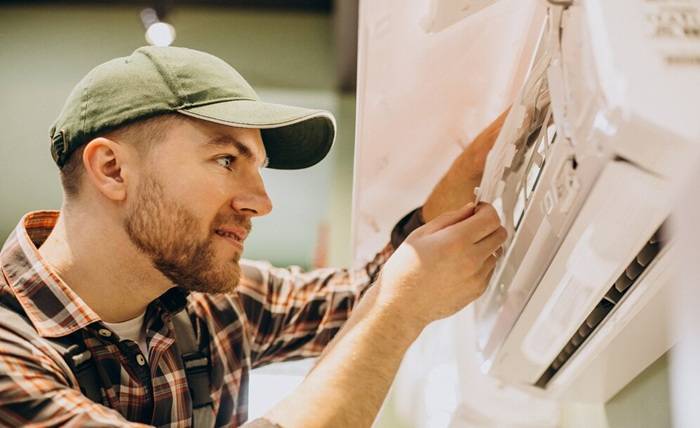Air conditioning units are vital for keeping your home comfortable, especially during the summer. But when your AC starts underperforming, it can quickly become both frustrating and costly if you don’t address it right away.
The good news is that many common issues causing poor cooling performance can be identified and fixed before calling in professional AC diagnostic services. This guide provides a thorough method for uncovering hidden AC problems, empowering homeowners to spot potential issues and ensure optimal system performance.
Recognizing Subtle Signs of Malfunction
The first step in diagnosing AC issues is to pay attention to any subtle signs that the system isn’t functioning properly. Sometimes, these issues can be so minor that they’re easily overlooked. One of the most common signs that your AC is not performing optimally is inadequate airflow. If you notice a lack of cool air from the vents or the air feels weak, there could be a clog in the ducts, a dirty filter, or an issue with the blower fan. Your system may become less effective overall because of these problems, which may make it work harder and consume more energy.
Checking The Air Filter
Regularly inspecting your filter is essential to ensure that air can pass freely through the system. Dirty filters impede airflow and lead to overheating, which impairs cooling performance. In some cases, a severely clogged filter can even cause the AC to stop working entirely.
Depending on the type of filter, it is recommended to change it every one to three months to avoid build-up and ensure optimal performance. A clean filter helps maintain airflow, reduces strain on the unit, and prevents the buildup of dust and debris in the system.
Inspecting The Thermostat
Your thermostat informs your air conditioner when to turn on and off and regulates the temperature in your house. If it’s malfunctioning or set incorrectly, it can lead to inconsistent cooling. Check the thermostat settings to make sure they are accurate and verify that it’s in cooling mode. If the temperature reading on the thermostat doesn’t match the actual room temperature, you may need to recalibrate or replace the thermostat.
Furthermore, keep in mind that heat sources like lamps or direct sunshine can impede the thermostat’s ability to precisely measure the temperature of the room.
Assessing Refrigerant Levels
Another hidden issue that can affect your AC’s performance is low refrigerant levels. Refrigerant is the substance that cools the air inside your AC unit, and a shortage can cause the system to blow warm air. Unfortunately, this issue is more difficult to diagnose on your own, as it requires the use of specialized tools and knowledge. However, if you notice that your AC is blowing warm or room-temperature air despite being set to a cooler temperature, low refrigerant could be the cause.
While refrigerant leaks can be fixed by professionals, it’s important to monitor the performance of your AC to identify any unusual behavior. If you suspect a refrigerant leak, it’s best to schedule a professional inspection.
Inspecting The Condenser and Evaporator Coils
Over time, dust and debris can build up on your AC’s condenser and evaporator coils, making it harder for them to transfer heat. When the coils get too dirty, your system has to work overtime to cool your space—and in extreme cases, it may even freeze up.
To avoid this, regularly check the coils and clean them as needed. For outdoor condenser coils, make sure dirt, leaves, or debris aren’t blocking airflow. If you’re unsure how to clean them properly, it’s best to call an HVAC professional, as improper handling can cause more harm than good.
Maintaining The Ductwork
The ductwork in your home plays a key role in distributing cool air throughout your space. Leaks, cracks, or blockages in the ducts can greatly reduce your AC unit’s efficiency, leading to hot spots or uneven cooling. Regular inspections for visible damage, loose connections, or wear and tear can help prevent major issues down the line.
If you suspect your ducts are damaged or clogged, it’s crucial to have them cleaned and sealed by a professional. Damaged ducts can cause airflow issues, driving up energy costs and putting extra strain on your air conditioner.
When To Call a Professional
If the above steps do not resolve the problem, or if you notice any strange sounds, odors, or water leaks around the unit, it’s time to call in an HVAC technician. These experts can perform a thorough inspection, diagnose complex issues like refrigerant leaks or compressor failure, and ensure that your system is running as efficiently as possible.
Regular checks and quick action on emerging issues are essential. By spotting signs like poor airflow, a dirty filter, or thermostat problems, homeowners can address simple issues before they escalate.

